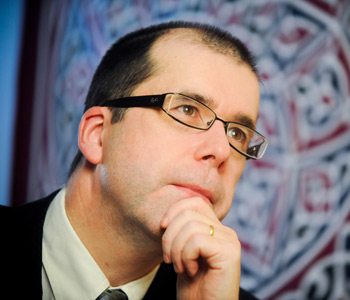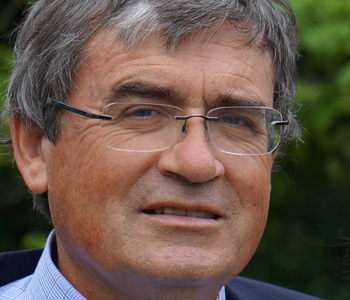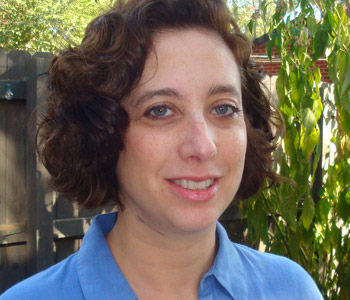Brian Boyd
Stalking Nabokov
Columbia University Press
464 pages, 5 1/2 x 9 1/2 inches
ISBN 978 0231158565
Stalking Nabokovfocuses always on Vladimir Nabokov and occasionally also on me in persistent pursuit, wielding a variety of nets, in different seasons and terrains, panting with effort while he flutters free.
Nabokov, “God’s own novelist himself” (William Deresiewicz), “the greatest writer ever to make a successful journey across the language frontier” (Salman Rushdie), was not only a novelist and short-story writer, but also an autobiographer, poet, dramatist, screenplay-writer, essayist, reviewer, translator, critic, scholar, lecturer, scientist, chess problem and crossword composer, and even a tennis coach and boxing coach.
In pursuing him over forty years as reader and researcher, I have also played many roles: as annotator, archivist, bibliographer, biographer, butterfly namer, cataloguer, conference-goer and conference organizer, critic, documentary adviser, donee, donor, editor, expert witness, interviewee, interviewer, mentor, reviewer, teacher, translator, trustee, and more.
In some of these roles I wrote the twenty-six essays here, most in the last ten years—some even incorporating material discovered only this year—as I worked, most of the time, on very different writers, from Homer and Shakespeare to Dr. Seuss (Nabokov’s friend, Ted Geisel) and Art Spiegelman.
Nabokov drew details of butterfly anatomy while peering down a microscope. The portrait in Stalking Nabokov is less microscopic than kaleidoscopic: Nabokov the man, the thinker, the scientist, and above all the writer: storyteller, poet, intuitive psychologist; diarist, humorist, scenarist and stylist; on his own or in conjunction or contrast with Shakespeare, Pushkin, Tolstoy and (you didn’t guess this one) Machado de Assis; and as author of Speak, Memory, Lolita, Pale Fire, Ada, and now, The Original of Laura.
I try to tease out Nabokov’s consistency while also highlighting his variety. I sometimes show the hard lone toil of the artist and the scholar (in this case, me too), and how it relies on or resists the work of others. I show how obsessions, Nabokov’s and mine, need not preclude multiplicity and surprise.
Nabokov looms as one of the giants of recent literature. But his breadth fascinates as much as his height: his stretching between modernism and postmodernism, Europe and America, Russian and English, art and science. He hated whatever might curb the unruly individuality of things, and in this as in much else he helped shape me.
In my Ph.D. thesis in the late 1970s I initiated the metaphysical turn in Nabokov studies, explaining Nabokov not merely as a Daedalian artificer but as a writer with an originality of philosophical thought that profoundly shaped his styles and stratagems.
Understanding his metaphysics does allow us to see vivid depths beneath his dazzling surfaces, but like many new discoveries this recognition has for some hardened into routine, turning from an open space for free exploration into an automatic mental shortcut at odds with the whole spirit of Nabokov.
In Stalking Nabokov I consider as many different facets of man and writer as I can fit within one fat book: the relationships between his life and art; between the material archives that survived him, with all their accidents and erasures, and the perfections of the finished designs; between the immediacy of his diary and the controlled distance of his memoir; between his final effects, his revealing afterthoughts, and the unfinished manuscript of The Original of Laura; between his much-admired prose and his underrated poetry; between his timeless sentences and his swift spurts of story; between his literary art and his science, as they collaborated, cross-fertilized, and competed; between his literary creativity and his literary scholarship; between his reading and his writing, and between his spirit of fierce creative independence and his deep sense of indebtedness to the inspiration of a Pushkin or a Shakespeare; between his Russianness and his American and European milieus; between his humor and his seriousness; between his antipathy to what passed for psychology in the mid-twentieth century and his deep own engagement with the mysteries and possibilities of the human mind.
I explore revealing contrasts, like Nabokov and his compatriot Tolstoy, and revealing congruences, like Nabokov and Brazil’s Machado de Assis, a chronological contemporary of Tolstoy who seems artistically much closer to Nabokov and Beckett.
I first read Nabokov at about 13 and first began stalking him at 16. Nabokov wanted nothing more than to turn his readers into stalkers, by planting little clues along the fictional trails he blazed, challenging them to catch up with him. Which leads us to . . .
[I recount the story of a shirtless Nabokov catching butterflies in the mountains of Utah in 1943 and responding only slowly to John Downey, a student stopped beside the coal truck he was driving. Downey told Nabokov he too was interested in butterflies, but Nabokov needed proof, quizzing him as butterfly after butterfly flitted by as they walked down the mountain road. Partly thanks to Nabokov, already becoming the world expert in the Blues, Downey would become the world authority on the Blues in the next generation.]
What strikes me about Nabokov’s encounter with Downey in Cottonwood Canyon is the demands he makes, the conditions he imposes, on this grimy truck driver: You can walk with me, but I will test you a little. If you pass the test, I will let you see who I am, and I will even offer you all that I have found, so that you can go on to make your discoveries in turn.
As much as the chess problem [that Nabokov describes in Speak, Memory], the story suggests Nabokov’s demanding but ultimately generous relationship to his readers, which reflects his sense of the demanding but ultimately generous world that life offers us.
That seems to me the key to Nabokov. He was a maximalist: someone who appreciated, as much as anyone has, the riches the world offers, in nature and art, in sensation, emotion, thought, and language, and the surprise of these riches, if we animate them with all our attention and imagination. Yet at the same time he felt that all this was not enough, because he could readily imagine a far ampler freedom beyond the limits within which he feels human consciousness is trapped.
He celebrates with unique precision and passion the delights of the visible and tangible world, the tenderness and force of human feelings and relationships, the treasures of memory: the thetic pleasures of life, if you like. He planned to call his first novel Happiness—until he realized that might be just a little too unguarded.
Yet Nabokov also has a deserved reputation for his acid imagination, his savage irony, and his trenchant ability to deflate, to register disappointments, humiliations, and horrors. His stories offer endless evidence of the comic, ironic, tragic limitations of human life, and he never lets us forget the absurdity of the very conditions of the human mind: of the solitary confinement of the self, as he defines one central aspect of his work, or of the prison of time, as he defines another. At this level Nabokov registers the “antithetic torments” of life and writes books entitled not Happiness but Laughter in the Dark or Despair.
But readers who stop there, and think that he stops there, in modernist irony or a postmodernist abîme, miss altogether his positive irony, his attempt to encompass all the negatives, as he suspects life itself does, and reverse their direction in the mirror of death. The search for that possibility is what makes Nabokov different and what makes him write. He believes that the fullness and the complexity of life suggest worlds within worlds within worlds, and he builds his own imagined universes to match. Although we cannot see his hidden worlds at first, he allows us to find our own way to them, just as he thinks whatever lies behind life invites us to an endless adventure of discovery in and beyond life. At this “synthetic” level, Nabokov writes books with titles like The Gift, whose hero in turn thinks of writing “a practical handbook: How to Be Happy.”
Lately literary critics and scholars have tended to avoid a single-author focus, partly because authors have been downgraded as the causes of literary works.
That’s a mistake, I think. Nothing like “The Library of Babel,” Lolita, or Waiting for Godot would have been written in the mid-twentieth century or at any other time had Borges, Nabokov, and Beckett not lived—even had history otherwise run the same course. All three were saturated in literature past and present but sought it out and responded to it in unique ways.
The best criticism, too, is highly individual but also part of highly social processes, and that’s another thread that runs through these pieces. Criticism is cooperative: we want to understand the same works, and we learn from others both specific information and ways to understand and appreciate. And it is competitive: we want to challenge others whose claims we find wrong, and we want our efforts and results to be recognized.
In my work on evolution and literature, the one line of research after Nabokov that I have so far had time to pursue to something near satisfaction, I have explored the interplay of the individual and the social, the collaborative and the competitive, the original insight or the independent effort and the traditions and institutions that make the insight and effort possible and worthwhile.
Another thread running through Stalking Nabokov is the range that specialization can entail. Specialists may become too narrow, but Nabokov himself wonderfully evoked for his literature students the magic of discovery that specialization could allow. A research specialization like mine on Nabokov has required language learning, interpretation, annotation, bibliography, translation, forays into many literatures and into history, geography, philosophy, science, and psychology. It has meant the continued excitement of discovery; travels to five continents; meetings with the Nabokov family and writers, publishers, scientists, scholars, and librarians who worked with or after him; dialogues with readers famous and obscure; documentary filming; naming new butterflies; and even a law trial.
The best antidote to the confines of one kind specialization can be to follow orthogonal lines of specialization. In Nabokov’s case, literature and Lepidoptera, poetry and prose, versification and boxing. In my case, partly as a comparison and contrast to Nabokov within literature, and, as an alternative delight, Shakespeare; as a contrast to Nabokov’s high-culture status, Dr. Seuss and Art Spiegelman; as a contrast and comparison to Nabokov within twentieth-century thought, the philosopher Karl Popper, with his specializations in the philosophy of science, physics, music, and social philosophy, and his preference for ideas over words; narrative, from Homer and Genesis to the present, across all modes, from epics to comics; and literature and evolution, which has meant exploring across arts and eras and into biology, anthropology, and many fields of psychology. Readers of Stalking Nabokov will see these other specializations from time to time crossing my Nabokov trail and offering glimpses of other vistas.




We don't put paywalls. We don't distract you with ads. We don't sell your data.
Please help to keep this running!